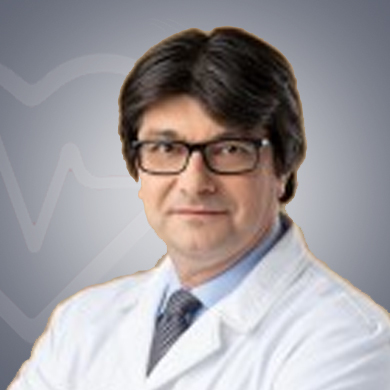
26 Years of experience
Speaks: English
Neurosurgeons are trained to treat people suffering aneurysms, blocked arteries, trauma to the brain and spine, birth defects, chronic low-back pain, brain and spinal cord cancer, and peripheral nerve problems. Neurosurgeons also do surgeries for carpal tunnel syndrome, spinal surgery, and brain tumor removal surgery. Here is a list of some of the conditions Dr. Peter Banczerowski treats:
Some of the signs and symptoms of neurological disorders are listed below. Consult your doctor/neurosurgeons if you experience any of these symptoms. Early detection of the condition can help control the severity of the symptoms and can be effectively treated. The below symptoms should be discussed with a neurosurgeon who will advise required diagnostic tests and start appropriate treatment.
Neurological disorders can cause mixed symptoms, such as difficulties in moving, speaking, learning, swallowing, breathing. According to brain specialists, there are more than 600 neurologic diseases that cause mild to severe symptoms. Having a neurological disease could have a deep impact on the patient’s life. It is very important that a person should seek medical advice from a neurologist.
You can find Doctor Peter Banczerowski in the clinic/hospital from 11 am to 5 pm (Monday to Saturday). The doctor is not available on Sunday. Call the doctor or his attendant to confirm his/her availability because the doctor may not be available due to some personal reasons or any emergencies.
The popular procedures that Dr. Peter Banczerowski performs are listed below:
With a rich experience in neurosurgery and having a record for performing a number of successful brain surgeries with a high success rate, the neurosurgeon has received global recognition for their holistic approach. Patient safety is the top priority for the doctor who follows all medical protocols and provides care of international standards. Also, the doctor can handle even the most complicated cases with ease.

Share Your Experience about Dr. Peter Banczerowski

Neurosurgeons, also known as brain surgeons, are doctors who specialize in the surgical treatment of conditions that affect the nervous system, brain, and spine. Neurosurgeons first have the training which makes them eligible to practise as a doctor. After this, they complete specialist training in neurosurgery. Neurosurgeons work in different settings like private clinics and public or private hospitals. They often collaborate with other specialists and medical professionals as per the requirement of surgery. They also evaluate the condition of the patient before performing surgery in order to find the complications of the surgery, if any.
Diagnosis tests act as an important tool to find out the condition(s) a patient is suffering from. So, a neurosurgeon will ask you to get a few tests done so that they get to know the cause of the symptoms which further helps in finding the condition the patient is suffering from. Based on the diagnosis, the doctor can start appropriate treatment. A neurological examination may include the following:
For the diagnosis of neurological conditions, you need to have one or more of the following tests::
Here are some of the common signs that you must seek the medical assistance of a neurosurgeon:
Dealing with the entire nervous system, neurosurgeons treat all the parts of the body that are affected by nerve issues. They do complex surgeries on the brain. Before starting treatment, they diagnose patients' symptoms and design minimally invasive treatment plans.